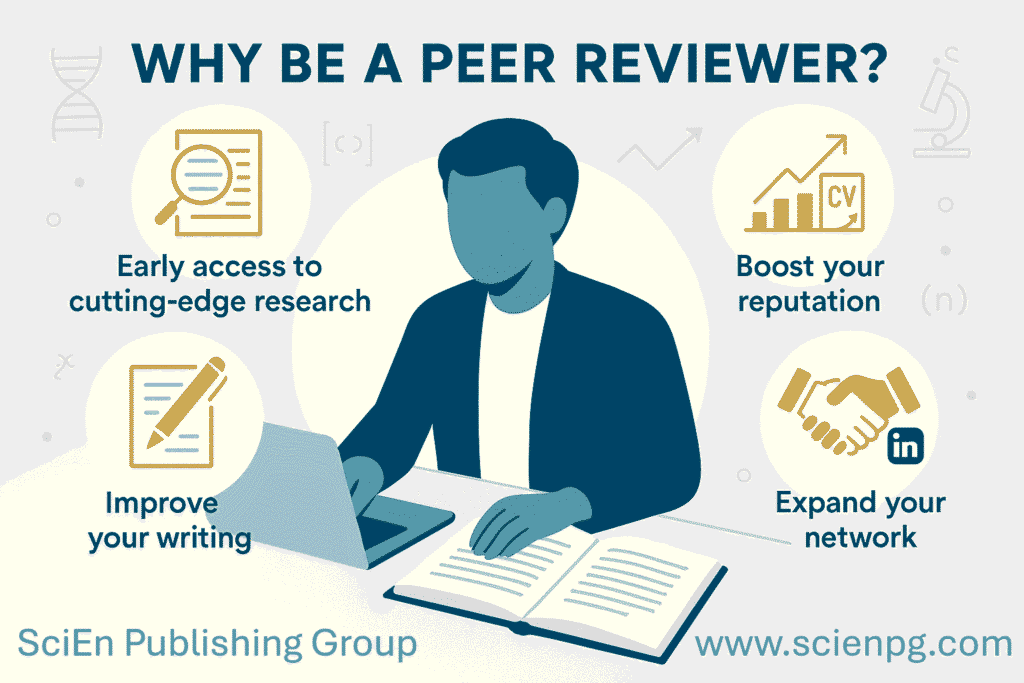Benefits of Being a Journal Reviewer

Peer review is the backbone of academic publishing, ensuring the credibility and quality of published research. While reviewing manuscripts is often seen as an unpaid service to the scholarly community, it offers significant professional and personal benefits that many researchers overlook.
1. Stay Ahead in Your Field
Reviewing exposes you to cutting-edge research before it’s published. You gain early insights into:
Emerging trends and methodologies.
Groundbreaking findings in your niche.
Common pitfalls in experimental design.
This knowledge keeps you at the forefront of your discipline, helping you refine your own research strategies.
2. Improve Your Writing & Critical Thinking
Critiquing others’ work sharpens your ability to:
Identify logical gaps and methodological flaws.
Structure arguments more effectively.
Write clearer, more persuasive manuscripts.
Reviewing teaches you what editors accept and reject, making your own submissions stronger.
3. Boost Your Academic Reputation
Serving as a reviewer enhances your CV and professional standing by:
Earning recognition from journal editors (often listed in annual acknowledgments).
Increasing chances of joining editorial boards.
Strengthening your profile for promotions, grants, and collaborations.
Many funding agencies (e.g., NIH, ERC) value peer review as a form of scholarly service.
4. Expand Your Network
Reviewing connects you with:
Editors who may invite you to submit work or join their team.
Authors whose research aligns with yours (potential collaborators).
Fellow reviewers in your field.
These relationships can lead to invited talks, co-authorships, and career opportunities.
5. Influence Your Discipline
As a reviewer, you:
Shape the literature by ensuring only rigorous, impactful work is published.
Uphold ethical standards by detecting plagiarism or data manipulation.
Guide early-career researchers with constructive feedback.
Your expertise helps maintain the integrity of science.
6. Get Free Access to Journals
Many publishers reward reviewers with:
Subscription discounts or waived APCs (Article Processing Charges).
Complimentary journal access for a limited time.
Certificates of recognition for your service.
How to Become a Reviewer
Publish actively in your target journals.
Network with editors at conferences.
Register on platforms like Publons, ORCID, or journal reviewer databases.
Reviewing isn’t just a service—it’s a career-building tool. By dedicating a few hours per manuscript, you gain knowledge, visibility, and influence that far outweigh the effort.
Ready to start?
Journal of Engineering Advancements is looking for potential reviewers in the following major fields:
- Aerospace Engineering
- Civil Engineering
- Computer Science and Engineering
- Electrical and Electronics Engineering
- Industrial and Production Engineering

